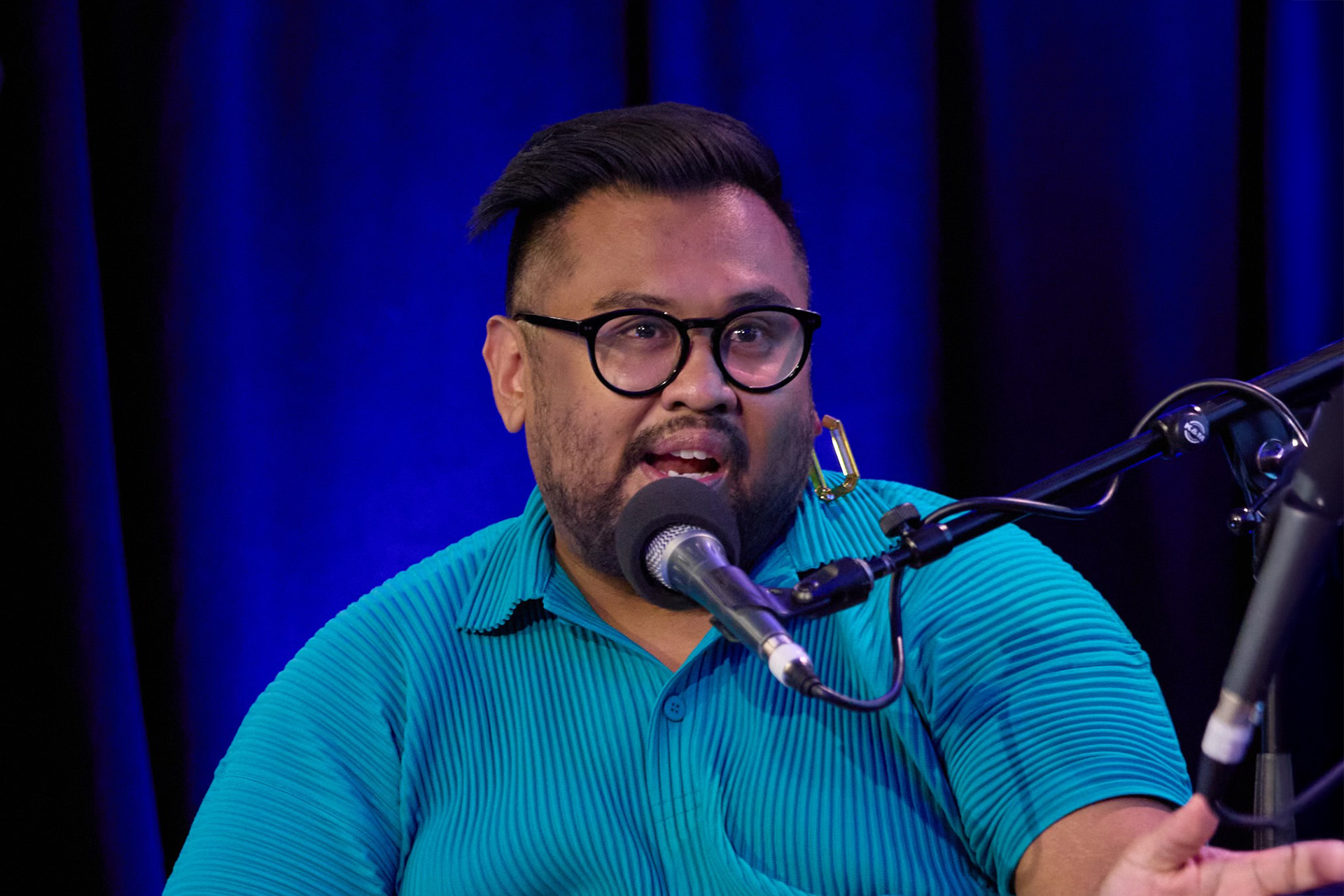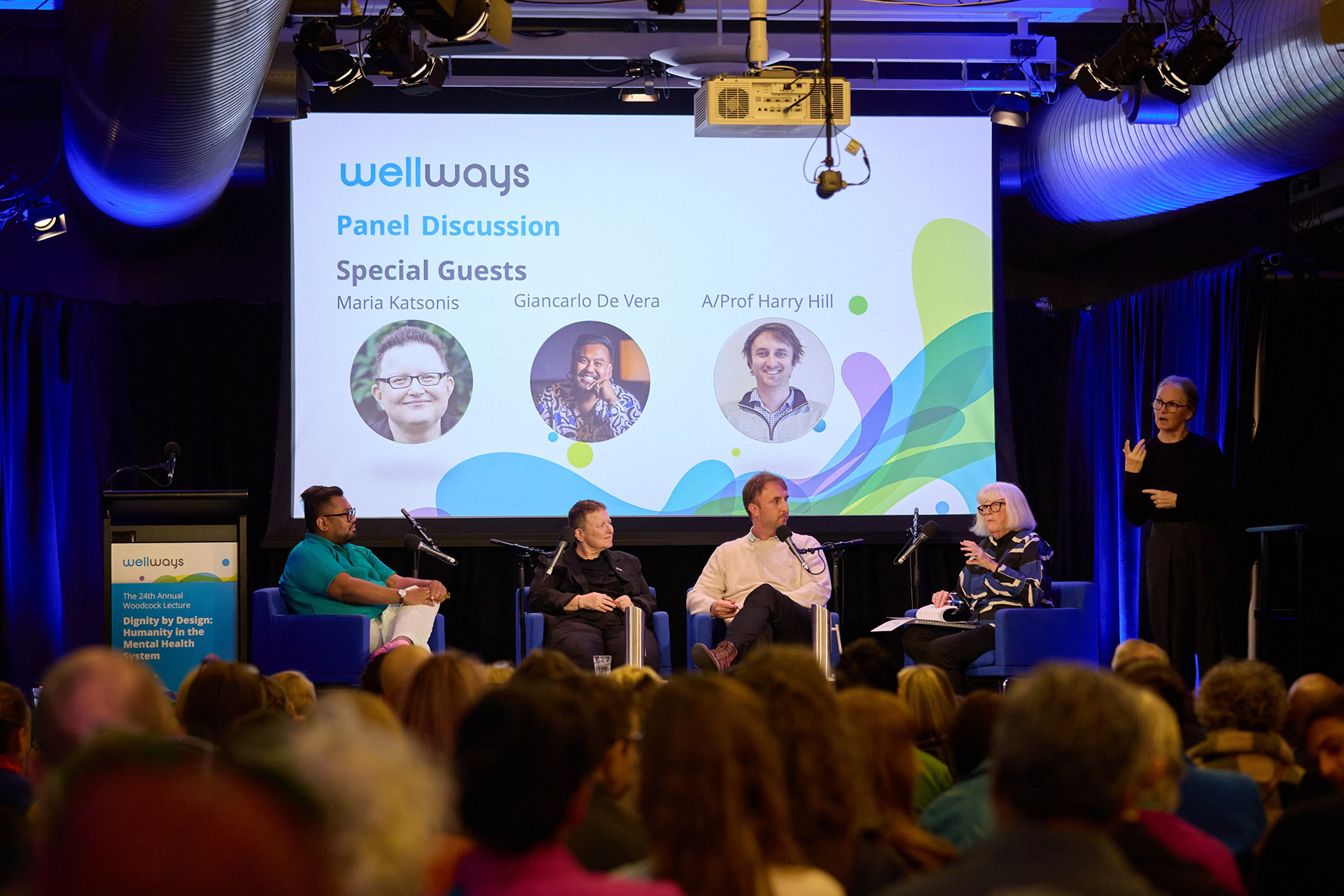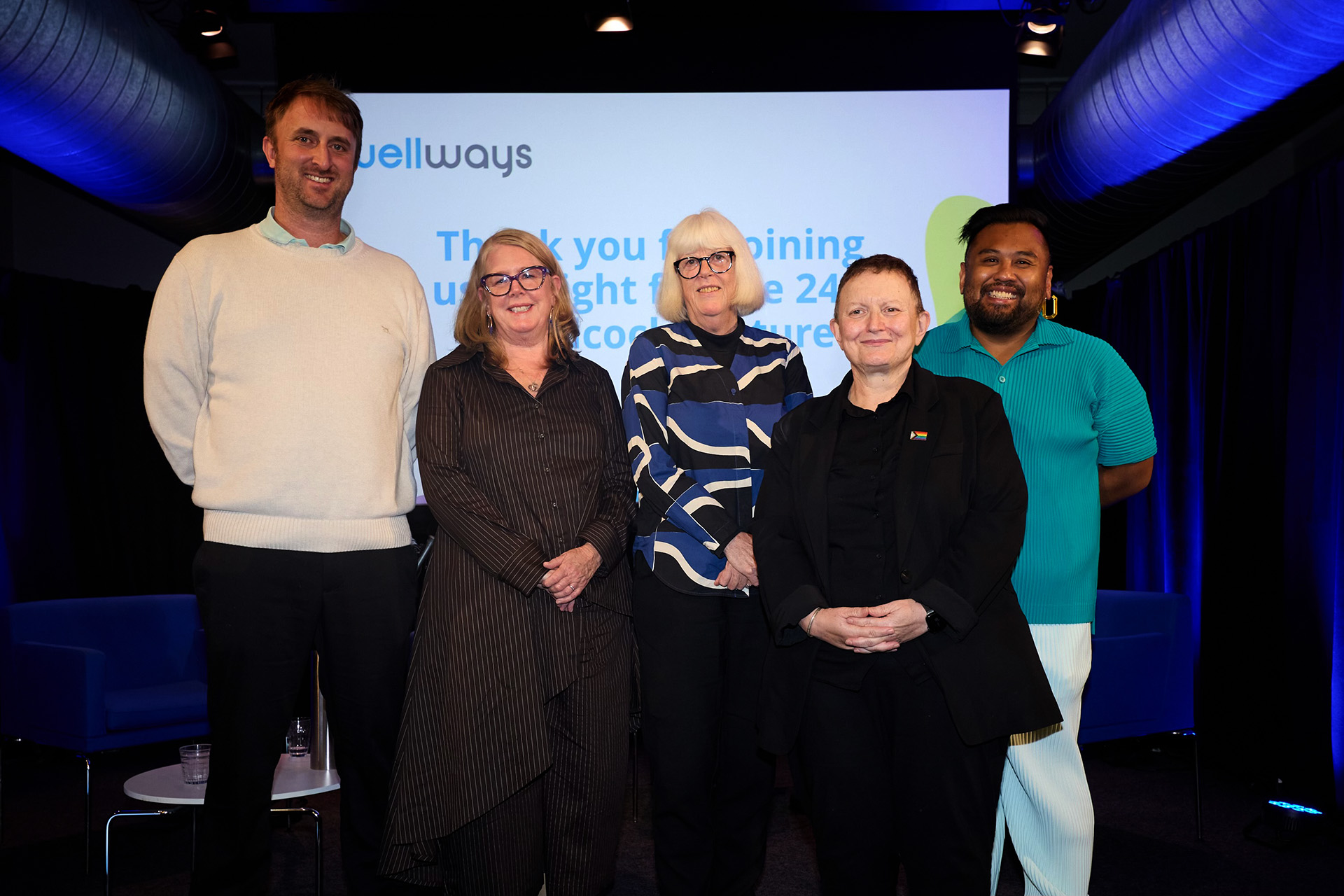On Thursday, May 29, Wellways held its 24th Annual Woodcock Lecture at The Wheeler Centre in Melbourne. The evening brought together mental health advocates, peer workers, clinicians, and people with lived experience around a central theme: how to centre dignity and humanity in the mental health system.
Framed by two vital questions – how well do our systems uphold human rights and dignity? And how can we reimagine care that is compassionate and transformational – the event, also livestreamed to hundreds of online attendees across the country, offered a passionate, robust and balanced discussion on the shared role we all play in building a more compassionate mental health system.
Grounded in truth and respect
Wurundjeri Elder Aunty Annette opened with a heartfelt Welcome to Country, anchoring the evening in truth and deep respect for First Nations people during National Reconciliation Week. Her words reminded us that truth-telling and accountability must sit at the heart of all reform – not just in mental health, but in every system that shapes lives.
Wellways Board Chair Michael Gorton welcomed attendees and reflected on the Woodcock Lecture’s legacy: to centre dignity, elevate lived experience, and challenge the status quo.
“We are so grateful to have the Lived and Living Experience Authority here,” he said. “It’s through these voices that genuine transformation becomes possible.”
An invisible violence
This year’s keynote speaker, Giancarlo de Vera (He/They), CEO of BEING, held the room’s attention during his keynote. They reflected on personal experiences, the loss of close friends and the ‘slow invisible violence of coercive treatment’ that exists within the mental health system – which too often responds to distress with force, ‘justified under the false guise of safety’.
“These tools of power – diagnosis, treatment orders, institutional language – are not neutral,” they said. “They govern who gets help and who gets handled.”

This year’s keynote speaker, Giancarlo de Vera
Calling for an end to forced treatment and for the Convention on the Rights of Persons with Disabilities to be embedded in Australian laws, Giancarlo urged a shift to supported decision-making and trauma-informed care. They acknowledged the resilience of First Nations people and reminded us that the future of mental health is already being built: through peer workers, legal advocacy, and families choosing love over control.
Perspectives from practice and advocacy
Panel facilitator Mary O’Hagan, Director of Lived Experience at Wellways, led a thoughtful discussion with panellists Giancarlo de Vera, Maria Katsonis (a respected lived experience advocate and Deputy Chair of the Victorian Collaborative Centre for Mental Health and Wellbeing), and Associate Professor Harry Hill.
Maria spoke about reading her 85-page hospital file – not one line describing her as a person.
“When all you are is a manilla folder, you cannot exercise agency,” she said. “The system needs to see us as people – not just assess our ‘affect for the day’.”

Diverse perspectives: The panel brought together lived experience, governance, and clinical viewpoints.
Harry shared a story of working with a woman long caught in crisis cycles. A simple shift – from risk to relationship, saying “When you’re ready, we’re here” – made space for real healing. “That honest, relational approach changed everything,” he said.
The panel agreed: relationships must sit at the centre of care. While bureaucracies may not always measure what matters most, people know when they’ve been truly seen and heard.
Holding on to Hope
The evening achieved what it has always set out to do: inspire and challenge our ways of thinking. The audience both in-person and online brought hard-hitting reflections and questions to the conversation, mirroring the passion and energy of the panel. In the closing comments, Wellways CEO Laura Collister shared the mix of emotions she had felt during the lecture, but above all, was left feeling hopeful.
“Mary reminded me that we all have a role to play in building a more humane system. We need to keep pushing – because only by pushing will change ever come.”

Left to right: Associate Professor Harry Hill, Laura Collister, Mary O’Hagan, Maria Katsonis and Giancarlo de Vera
Hope became the thread running through the evening. Hope that transformation is underway. Hope that mental health care can reflect dignity, diversity and humanity. And hope that, as a sector, we can achieve this – together.
“The system does not suffer from a lack of potential. People with lived experience hold the key to change. But for us to step forward, those with power must step back – so we can step forward, together.”
– Giancarlo De Vera
